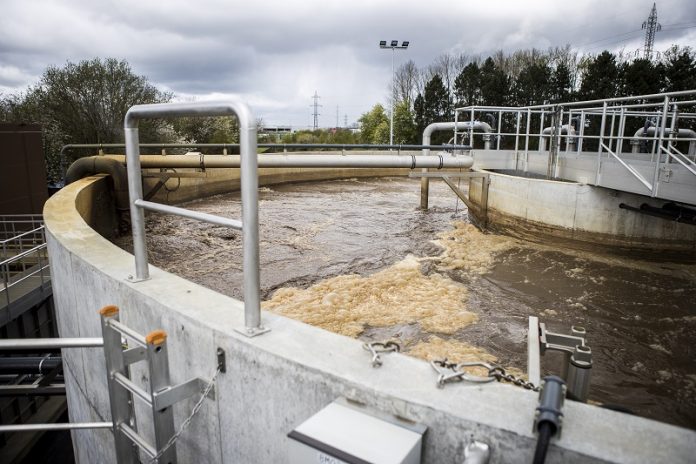On May 6, Carlsberg is inaugurating a new, revolutionary water recycling plant that recycles 90 percent of the process water at the Carlsberg brewery in Fredericia, Denmark. This makes the Fredericia brewery the most water efficient in the world. Learnings from the brewery will enable the group to reach its target to virtually eliminate water waste globally by 2030.
With the new water recycling plant, the Fredericia brewery will save more than 500 million liters of water a year. 90 percent of process water from the production of beer and soft drinks will be recycled in the production facility. Water consumption will be halved from the current 2.9 hl of water per hl of beer to 1.4 hl of water per hl of beer.
“We are immensely proud to be able to unveil the world’s most water efficient brewing facility. Water is a basic ingredient in all our products, so water resource management is a high priority. Our water to beer ratio has always been low. Now we are taking it a step further. By recycling process water in our production, we are virtually eliminating water waste,” says Philip Hodges, EVP Integrated Supply Chain, Carlsberg Group.
Water is not only a basic ingredient in the products from Carlsberg but is also essential to the sustainability of the societies where the brewery operates, and clean water is a priority in the UN Sustainable Development Goals. Therefore, Carlsberg has a goal of eliminating water waste by 2030 as part of the group’s sustainability programme Together Towards Zero.
“We have a goal of zero water waste globally in 2030. As a global company, we have a responsibility to support the UN Sustainable Development Goals, and as a brewery, we have a special responsibility to reduce water waste in our global production. The new water recycling plant in Fredericia will generate important learnings that can be implemented across our breweries in the rest of the world,” says Carlsberg Group CEO, Cees ’t Hart.
It is estimated that the water recycling plant will also reduce the brewery’s energy consumption by 10% through own biogas production and recirculation of hot water, further contributing to the Together Towards ZERO sustainability programme.
The new plant is a result of broad collaboration in the Danish partnership for Resource and water efficient Industrial food Production (DRIP). For the project to succeed both businesses, technical experts and health and food authorities have had to rethink how we use and reuse water and expand the limits of water purification and circularity.
“The plant in Fredericia is built on a new and innovative approach to cleaning and recycling process water where you, among other things, use UV-light to eliminate bacteria. At the same time biogas is produced as a residual product, which can be used to produce energy. It is a whole new form of circularity in food production. In fact, the process water ends up being clean enough to drink, but we are only using the water to clean the production facilities,” says Carlsberg Denmark Brewing Director, Anders Kokholm.
The new facility will be inaugurated at a special event attended by the Danish Prime Minister as well as representatives from Carlsberg and the DRIP-partnership.
About Together Towards Zero
Together Towards ZERO is Carlsberg’s vision for a better and more sustainable future in a time with serious challenge such as climate change and water scarcity. The program consists of four goals: ZERO CO2-emissions, ZERO water waste, ZERO irresponsible drinking culture and ZERO work-related accidents. Each of the four ambitions is supported by individual and measurable goals, which are to be obtained by 2022 or 2030.
Our business depends on the availability of clean water. No water, no beer. But the supplies are becoming more and more scarce in some regions where our beer is brewed, so we must use it sparingly.
With a goal to reduce water consumption in our breweries by half by 2030 and reduce it by 25 percent by 2022, we are obligated to eliminate water waste. Through community partnerships we help preserve common sources of water around our breweries with a focus on areas that are classified as high risk.



